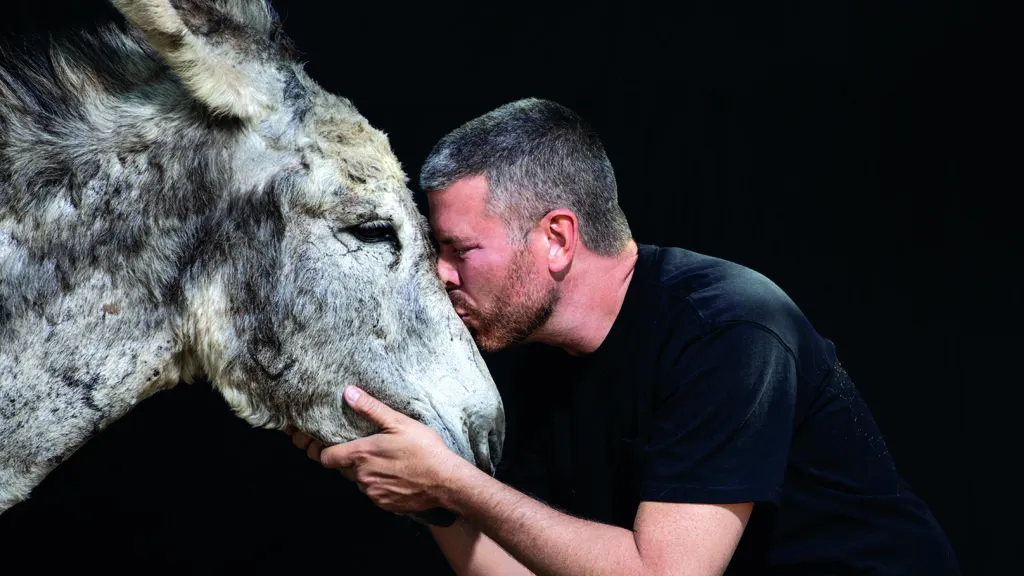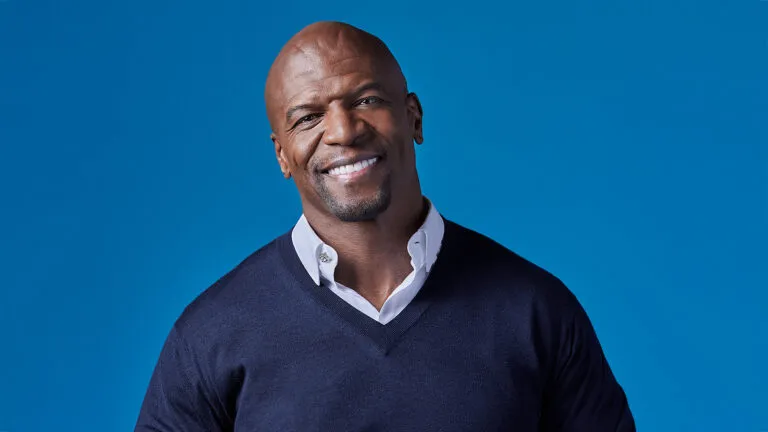Media executive Ron King, who spent 20 years working for magazines like InStyle, Essence and Southern Living, didn’t expect to retire at 51. But the plight of donkeys captured his imagination and his heart. He read about the world’s donkey population declining due to the high demand for their hides. Then he moved out west and met a woman who was rescuing donkeys from slaughterhouses. It was a sign. That’s when he decided to end his publishing career and commit himself to saving these animals.
Ron teamed up with a long-time friend to open Oscar’s Place, a donkey adoption center and sanctuary in Hopland, California. The nonprofit foundation saves donkeys from auction houses and rehabilitates them physically, mentally and emotionally before helping them find forever homes. As for Ron, he’s found a home too and has never looked back.

My friend Phil Selway, a pop art dealer and philanthropist who owns the property, had set up a philanthropic foundation designed for animal welfare but hadn’t yet activated it with any specific cause. I left my position as senior vice president at Time Inc. during the pandemic and moved to California, where I spent a lot of time thinking about the value of peace, serenity and joy.
I met a woman who was rescuing donkeys from slaughterhouses but had nowhere to take them. I wrote a business plan for Phil that detailed operating a sanctuary here, and he was more than happy to jump on board.
Our first five donkeys arrived from slaughterhouses on December 5, 2020. We officially launched as Oscar’s Place on January 1, 2021. Three days later, the next 25 donkeys arrived. We have another 30 that will be on their way after a month of quarantine with an equine rescue organization we now work with called All Seated in a Barn.
How did you come up with the name?
Phil had a cat that passed away a few years ago named Oscar that meant a lot to him. He knew that whatever foundation he would set up would be named after him. So we’re saving donkeys at a place named after a cat!

I read an article in The Guardian about the donkey population decreasing—they’re being rounded up and slaughtered—due to a popular traditional Chinese remedy for insomnia that requires donkey hide. There are so many misconceptions about donkeys. Although people think they’re small horses, donkeys are actually way more doglike than horselike. They’re very personable and intelligent. The emotional part of a donkey’s brain is the same size as the emotional part of a human’s brain, so they form very strong bonds with each other and with their human caretakers.
What does rehabilitation entail at Oscar’s Place?
The folks at All Seated in a Barn rescue the donkeys and properly quarantine them, providing them with veterinary care. Then they’re transferred to Oscar’s Place. Vets continue to treat any further medical needs at the sanctuary.
To improve the donkeys’ emotional well-being, all employees and volunteers spend 50 percent of their day being hands-on with them. Whether it’s grooming, halter training, walking or just sitting on a bench with them until they trust us enough to eat a carrot out of our hands, we’re showing the donkeys that, despite what they’ve been through, humans are on their side.
Who adopts the donkeys once they’re healed?
Donkeys are adopted out to people who have herds of animals such as cows, goats or sheep. Donkeys are great herd protectors thanks to their intelligence, loud bray and hips that allow them to kick sideways and backwards. Although they’re in high demand, we don’t adopt out donkeys to petting zoos.
We don’t adopt out donkeys until they’re ready. We have a thorough vetting process that includes site visits. When we find good applicants, we place them on our waiting list and once the donkeys are ready, we rehome them.
How long do donkeys stay at Oscar’s Place?
Four to six months is a good time frame to get to know them and bring them back to good health—emotionally and physically. We have some donkeys that have had very difficult lives and haven’t made a breakthrough yet. They’ll stay here as long as they need to.
Tell us about some donkeys that are currently at the sanctuary.
Curley, who was rescued from a slaughterhouse, has been here since January and would not let us touch him. We spent time with him every day, feeding him carrots, which he took reluctantly. One day, for the first time in four months, he didn’t run when I reached out to him. He made the decision to trust us after finally realizing that we weren’t here to hurt him. We’ll continue to work with him and eventually find him a home.
Felix, who is so loving, arrived with pneumonia and was hospitalized at UC Davis Veterinary Hospital for two weeks. We were told he wasn’t going to make it, but this dude fought his way through.

My life has always been centered around having a positive impact—first on myself, then on my community and now on animals. All of these donkeys were destined for death. Given their rough start and the fact that they didn’t deserve it, I’m now dedicated to helping them live the best life possible.
How can people help donkeys?
They can support donkeys by becoming more educated on what products use donkey hide (and not buying them), providing financial assistance to a charity like Oscar’s Place or adopting donkeys if they have the facilities to do so.
What kind of impact has Oscar’s Place had on everyone involved?
The impact on both the people and the animals is unbelievable. The job that my team does is not easy, but it’s very clear how much they’re helping these donkeys. And it brings all of us so much joy. It doesn’t actually feel like work at all.
For more inspiring animal stories, subscribe to All Creatures magazine.






